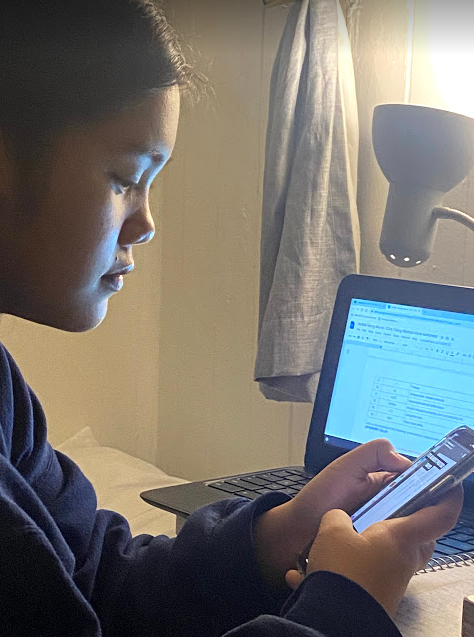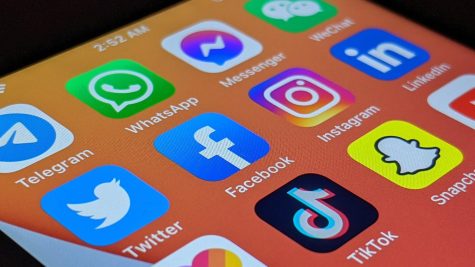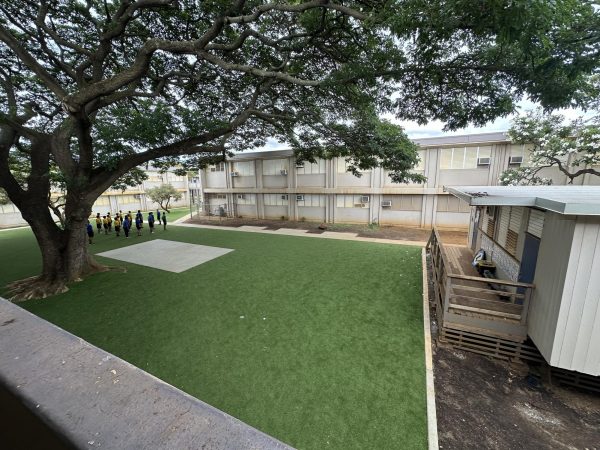Social media affects teens’ mental and physical health
Andria Akana, a Radford High School student, is distracted from online schoolwork by their phone.
Today, more teenagers are starting to use social media more than before. Teenagers spend an average of 9 hours a day on social media. Social media can have its benefits, but it also has its drawbacks.
Social media allows teenagers to create an identity in order to talk to others and build their social skills. Some of these platforms allow them to find a support system and communicate with others about their problems. Many teens use social media as a way to express and be themselves. Social media can provide something for teens to use to cheer them up and distract them from overthinking about things.
It can allow some teens to feel as if they have a safe place to post different things without worrying about their family seeing. For example, many teens feel as if they are not able to talk to their parents or family members about their problems. However, online they feel as if it is easier for them to talk to people who have experienced the same things as them or if they can relate because they are the same age.
Although social media can have some positive effects, it can also negatively affect teens. Social media can serve as a distraction, a disruption to their sleep schedules, and can expose teens to cyberbullying, peer pressure, and feeling self conscious.
Many teenagers spend a lot of their time on social media, which can distract them from getting work done or even sleeping at a reasonable time. Being on social media too much can cause some to procrastinate on their work or even not get it done, which can cause them to fall behind in school. Others even stay on their social media all night and only get a few hours of sleep, which can cause them to be tired and not focused during school hours.
Today, there are many standards people feel they have to meet in order to be accepted on social media. Samantha Caballero, a sophomore at Waipahu High School, says, “Social media could potentially bring down people’s confidence because social media tends to show a variety of people’s lives and appearances in which they may have some factors you don’t. This leads to comparison where you compare your life, body, and so much more due to unrealistic standards portrayed in social media. Once you think someone’s better than you and you get upset that you don’t have what they have, it lowers your self confidence.”
For example, if someone were scrolling through Instagram or TikTok and saw a really pretty girl with an “hourglass” body, they would get insecure because that person may have a certain body or facial feature that they think they don’t have.
Social media is a very controversial topic and can have positive and negative effects. Remember that no matter how thin or thick you are, your body matters and you shouldn’t have to worry about your appearance. Body types range from different shapes and sizes. To avoid getting distracted, you could set a screen time limit on your phone or set alarms to remind you it’s time to get off your phone and get work done.
Kehani Akana is a 10th grader in the Academy of Health and Sciences.






